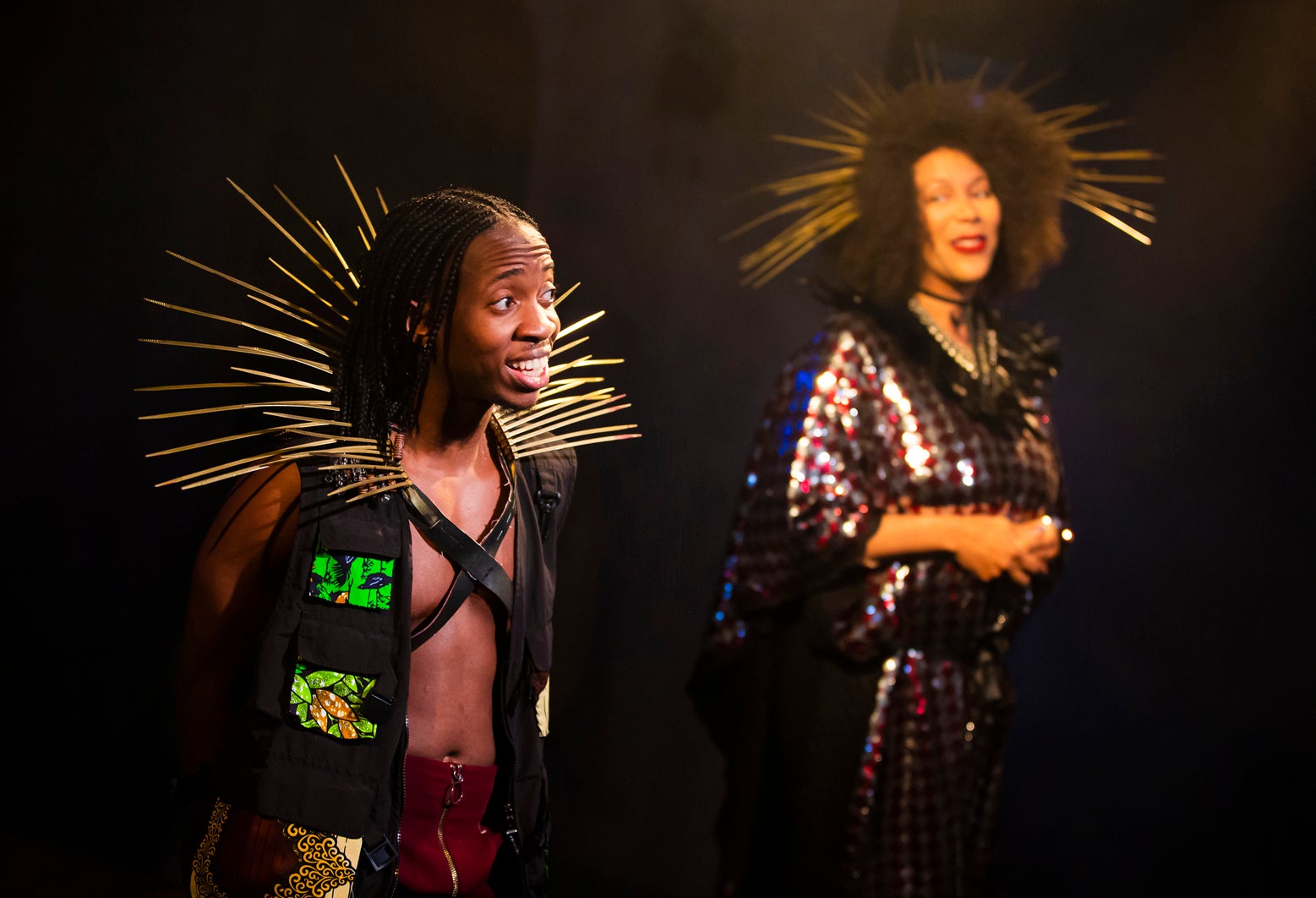Straight White Men writer Young Jean Lee: ‘Diversity is not some moral imperative like vegetable eating’
The experimental playwright whose hit drama made her the first Asian-American woman to have a play on Broadway talks to Isobel Lewis about how it came about, male mental health and addressing the issue of representation in theatre


Experimental theatre: it’s a dreaded phrase for many a playwright. But for Young Jean Lee, whom The New York Times called “the most adventurous downtown playwright of her generation”, the subversive stuff was child’s play. The last show she would ever want to make, conversely, was a naturalistic, three-act play about straight white men. “The idea of writing a play with a beginning, middle and end and characters who resemble human beings, it was all stuff I had no interest in,” she says. “So I combined it all into this one nightmare scenario and then went after it.”
First staged in 2014, the resulting family drama Straight White Men follows a family of four men (widowed father Ed and his three adult sons, Drew, Jake and Matt) as they get together over the Christmas period. Feeling the loss of their mother, who raised them to check their privilege before that phrase was widely used, the boys wrestle with each other, trade insults and perform “ironically racist” plays and dances. Their lives are at difficult stages. Jake is recently divorced, while Matt has moved back in with their dad, his brothers berating a lack of ambition he doesn’t see as a problem. At its heart, it’s a play about men who can talk about just about anything – except their feelings.
Since that first performance, Straight White Men has been performed around the world, with a 2018 production starring Armie Hammer, Josh Charles and Paul Schneider making Lee the first Asian-American woman to have her own show on Broadway. Now, the play is receiving its UK premiere at the Southwark Playhouse. If the show’s title is putting you off – a reaction Lee says has been present since the first performance – rest assured the play does not seek to demonise straight white men. Instead, Lee says, it’s an exploration of male mental health “that takes the problem very seriously and tries to treat [it] with as much compassion as possible”. Few audience members who come in with those preconceptions based on the title leave with them intact, she adds.
Within each production, the play is introduced by two non-binary, non-white actors, who act as a “proxy” for Lee herself and the perspective of the “other”. “As foreign as they are to us, we’re gonna try to find some understanding for straight white men,” one says. “That’s what we wish everyone would do for us.” Lee was aware of her own biases when writing the show – after all, she points out, “I’ve never been around a straight white man who wasn’t around an Asian woman.”
During early stages of development, the male actors would improvise scenarios, imagining they were visiting a recently divorced friend. Lee was left wondering what on earth she was watching as the men enacted sharing a beer and playing basketball, with no reference made to the divorce. “Maybe at the end of the game, the friend would say, ‘man, it sucks’ and the other guy would be like ‘yeah’ and that was the extent,” she says with an incredulous laugh. “To them, it’s an act of love.”

Within an industry traditionally dominated by white men, a play like Straight White Men feels like an act of rebellion. Back in 2014, audiences had often not heard the term “privilege” used in a social justice context. Fast-forward seven years and the London show is the first production to open in a world claiming to have been changed by the Black Lives Matter protests. That it comes from the first Asian-American playwright on Broadway makes it feel even more special.
Following last summer’s protests, theatre, like many industries, made promises to bring about radical change and focus on amplifying non-white voices. With theatres in the US reopening this autumn, does Lee feel like meaningful change is actually happening? “I do feel like the phase that we’re at is people understanding like, ‘Oh, there’s a problem that needs to be addressed,’ but I don’t think that they understand how to address the problem,” she says, addressing the lack of representation in theatre. “I think when a lot of people hear diversity, they just think not-white… there are so many different, marginalised groups who have really interesting stories to tell and we don’t hear [from] them at all and some of those people are white.”
Lee particularly butts up against the idea of diversity as some kind of “moral imperative”, comparing the current approach to forcing kids to eat their five a day. “I think it’s the opposite, actually,” Lee says. “For me, diversity is not really about morality. Historically, the new is so good for the arts... once you bring in a perspective that is new and different, it really shakes things up and makes things richer and better ... You actually have to be a believer, your motivation has to be like, ‘How do we make theatre better?’, as opposed to, ‘How do I stay out of trouble?’ I think that diversity is a good in and of itself, [but] if it’s approached as this morality vegetables thing, it’s not going to go well.”
‘Straight White Men’ runs at Southwark Playhouse until 4 December



Join our commenting forum
Join thought-provoking conversations, follow other Independent readers and see their replies
Comments